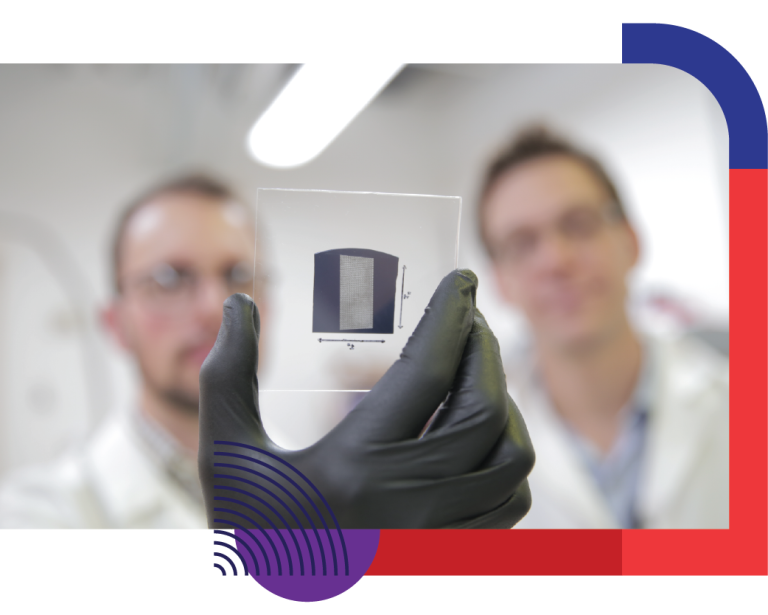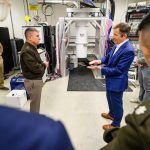Working with carbon nanotubes, quantum materials, and spintronic devices, our Beyond Silicon researchers are developing technologies that increase processing speed, reduce power consumption, and maintain high performance.
These breakthroughs are reshaping how chips are built and how they function. A major milestone in aligning carbon nanotubes has opened the door to faster, more energy-efficient transistors and flexible electronics. Meanwhile, quantum and spintronic research is enabling new types of memory and computing systems that are faster, more secure, and less power-hungry.
The impact goes far beyond the labs. These innovations support high-performance computing, secure communications, and advanced memory systems. They help industries build smarter tools and systems, and they have real public benefit—from better medical diagnostics to stronger national defense.

Latest News

Kawasaki named a Moore Foundation Experimental Physics Investigator
Jason Kawasaki, an associate professor in materials science and engineering at the University of Wisconsin-Madison, has been named a 2025 Gordon and Betty Moore Foundation Experimental Physics Investigator. Selection to the program is a prestigious honor …

2025 Nobel Prize Laureate John Martinis’s Connections to UW–Madison
Wisconsin CHIPS congratulates the 2025 laureates of The Nobel Prize in Physics—John Clarke, Michel H. Devoret, and John M. Martinis—for observation of quantum-mechanical tunneling in an electrical circuit based on superconductors! Excitingly, Martinis has connections to UW–Madison through shared research and his co-founded company Qolab.

UW fostering closer research ties with federal defense, cybersecurity agencies
UW–Madison is building stronger research partnerships with federal defense and cybersecurity agencies to advance technologies that serve the public good. A recent campus visit from Department of Defense and NSA leaders highlighted shared priorities in AI, quantum computing, and secure systems.
- More News
















